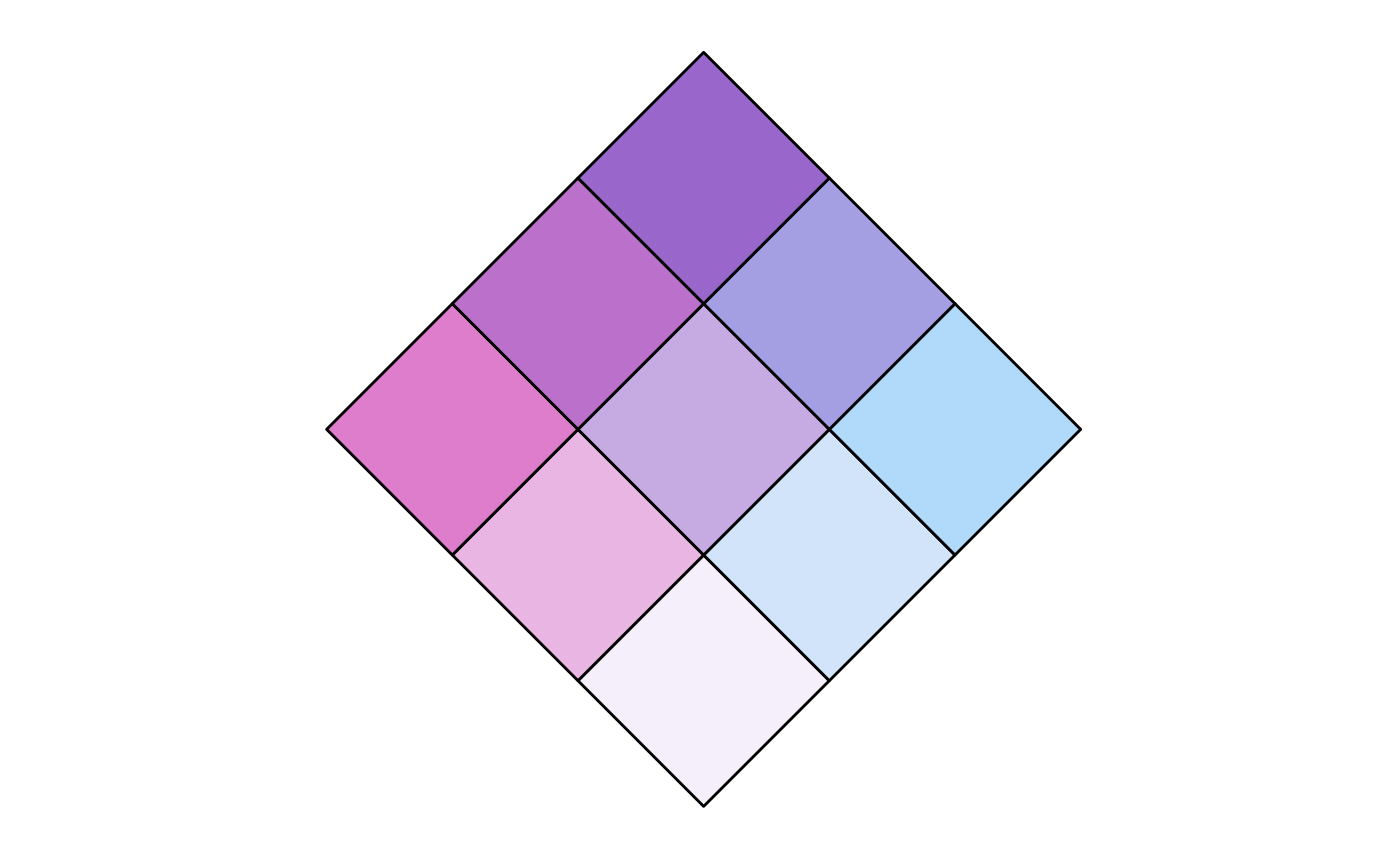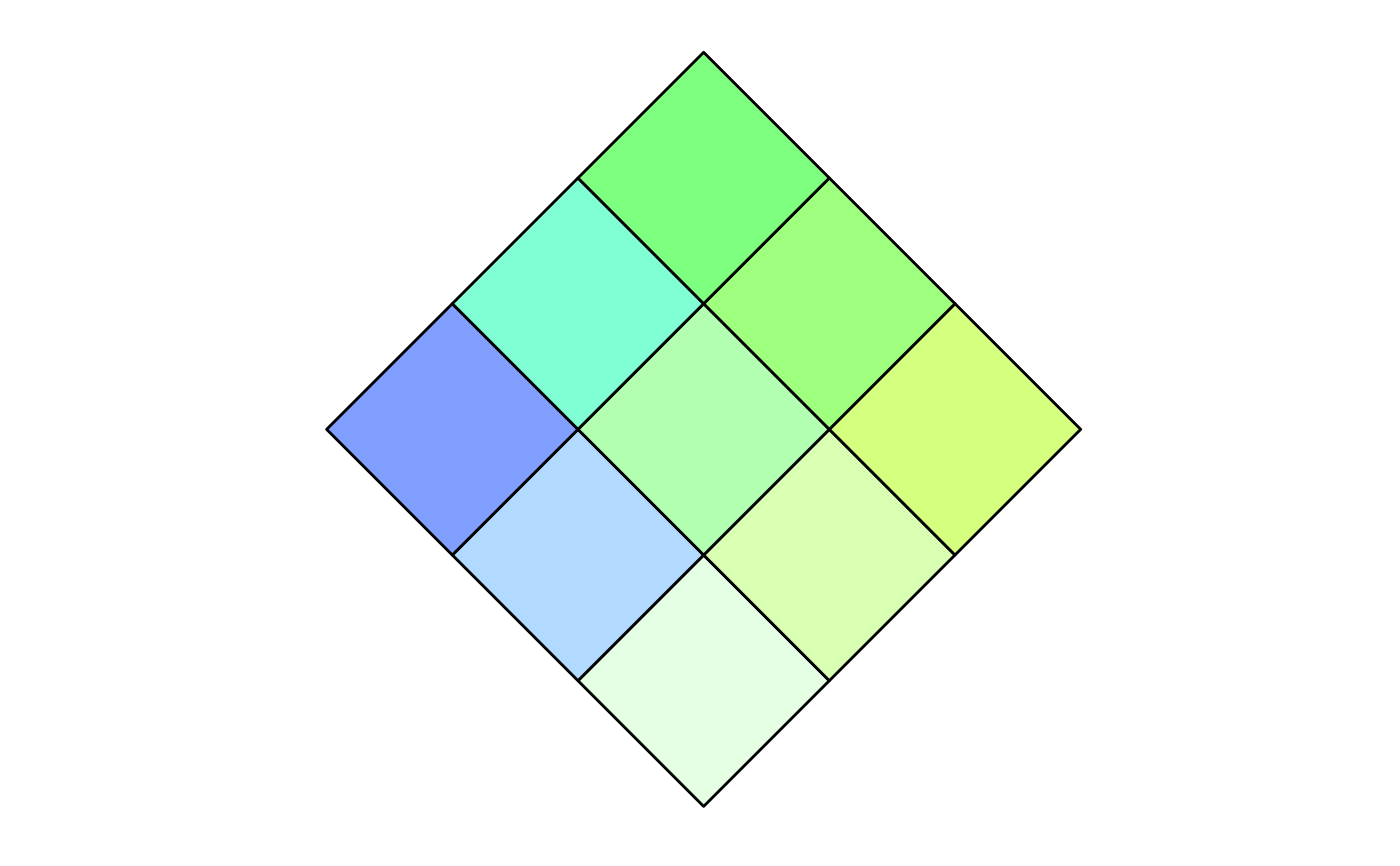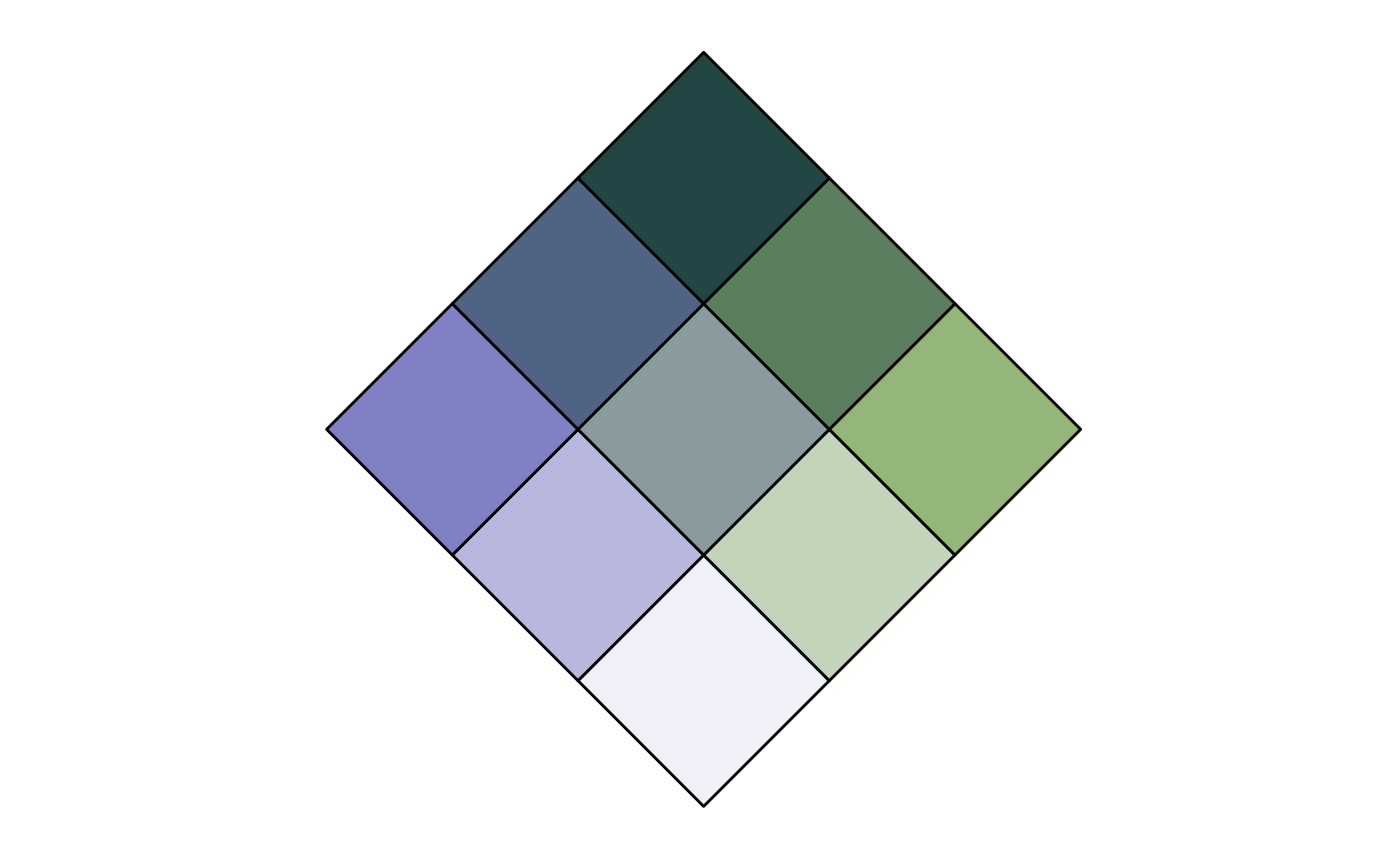This function prepares one of the four included colour palettes or builds a new colour palette.
build_palette(
name,
colrange = list(colour = NULL, difC = NULL),
flipVertical = FALSE,
flipHorizontal = FALSE,
subtractive = FALSE
)Arguments
- name
Name of colour palette or
usrfor option to design a new palette. Colour palette names includeBlueYellow,CyanMagenta,BlueRedandGreenBlue.- colrange
List with a character vector of length two called colour and a numeric vector of length two called difC. colour contains two colour names from the colours() range or valid hexadecimal colors. difC contains two integers (1, 2, 3 or 4), which control how much a colour changes in value across the grid. One corresponds with a small change in colour value, and four corresponds with a large change in colour value.
- flipVertical
Whether the palette should be flipped vertically (ie. replace top portion with bottom portion)
- flipHorizontal
Whether the palette should be flipped horizontally (ie. replace left portion with right portion)
- subtractive
A logical evaluating to TRUE or FALSE indicating whether the colour mixing is subtractive or additive
Details
Note that colrange only needs to be specified if name = "usr."
When choosing colours, it is best to avoid light colours or tints as these
will lead to a colour palette lacking noticeable differences across the 3 x 3
colour grid.
Note that subtractive = FALSE allows for additive colour mixing under
the RGB colour wheel while subtractive = TRUE allows for subtractive
colour mixing under the RYB colour wheel.
Examples
# use one of four prepared colour palettes
p <- build_palette(name = "CyanMagenta")
view(p)
 # use subtractive colour mixing (blue + yellow = green)
p <- build_palette(name = "BlueYellow", subtractive = TRUE)
view(p)
# use subtractive colour mixing (blue + yellow = green)
p <- build_palette(name = "BlueYellow", subtractive = TRUE)
view(p)
 # design a new palette
p <- build_palette(name = "usr", colrange =
list(colour = c("darkblue", "chartreuse4"), difC = c(3, 4)))
view(p)
# design a new palette
p <- build_palette(name = "usr", colrange =
list(colour = c("darkblue", "chartreuse4"), difC = c(3, 4)))
view(p)
